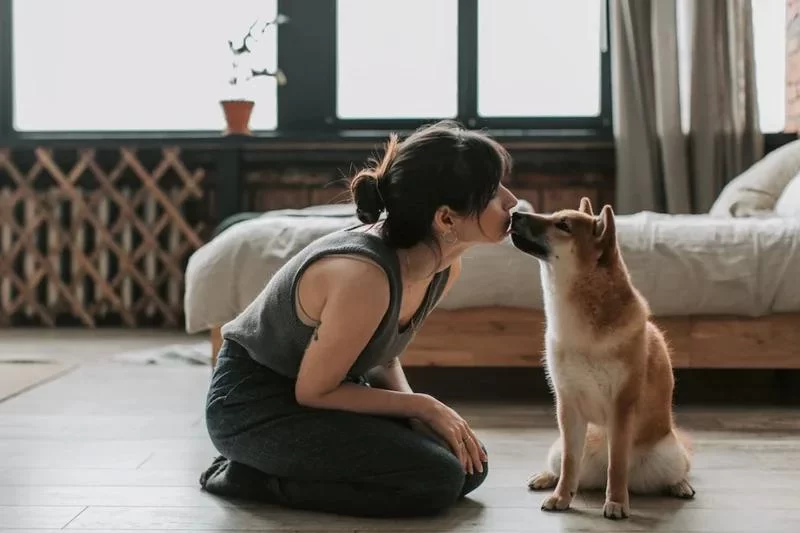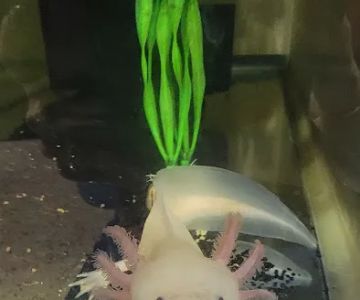- Understanding Pet’s Separation Anxiety
- Causes of Separation Anxiety in Pets
- Symptoms of Separation Anxiety in Pets
- Strategies for Managing Pet Anxiety During Travel
- Creating a Calming Environment for Your Pet
- Behavioral Training for Pets with Separation Anxiety
- Using Natural Remedies and Therapies
- Getting Professional Help for Anxious Pets
- Hidden Brook Veterinary Care: Expert Support
Understanding Pet’s Separation Anxiety
Separation anxiety is a common issue for many pets, especially during travel. This condition occurs when a pet feels distressed due to being separated from their owner or familiar environment. It can be particularly problematic during trips, whether you're heading to the vet or going on a vacation. Understanding the underlying causes of this anxiety can help you address it more effectively and ensure your pet stays calm during your travels.
Causes of Separation Anxiety in Pets
Pets develop separation anxiety for various reasons, and identifying these triggers is key to managing their stress. Some common causes include:
- Changes in routine or environment
- Traumatic experiences related to travel or transportation
- Lack of socialization or exposure to new situations
- Severe attachment to their owner or primary caregiver
- Previous negative travel experiences
When a pet associates travel with negative feelings, it can trigger anxiety. Similarly, pets that are not accustomed to being left alone or away from their owner can feel overwhelmed when separated, even if only for a short time.
Symptoms of Separation Anxiety in Pets
Recognizing the symptoms of separation anxiety in pets is crucial for timely intervention. Some common signs include:
- Excessive barking or meowing
- Destructive behavior, such as chewing or scratching
- Drooling, panting, or excessive salivation
- Vomiting or diarrhea
- Attempting to escape the travel crate or carrier
- Refusing to eat or drink
- Restlessness or pacing
These signs can escalate the longer the anxiety is left unaddressed, so it's important to take action early to help calm your pet before traveling.
Strategies for Managing Pet Anxiety During Travel
Managing your pet’s separation anxiety during travel requires careful preparation and a mix of physical and behavioral strategies. Here are some effective techniques:
1. Gradual Desensitization
Desensitize your pet to travel by slowly exposing them to the process. Start with short trips in the car or visits to the vet, gradually increasing the duration and frequency. This will help your pet become accustomed to the idea of travel and reduce their fear.
2. Familiar Scents and Items
Bring along familiar items, such as their favorite blanket, toy, or a piece of your clothing. These items can provide comfort and a sense of security during the journey, making the experience less stressful.
3. Calm and Steady Handling
Your behavior can influence your pet’s anxiety levels. Stay calm and composed during travel. If you're stressed, your pet will pick up on those emotions and become more anxious. Practice a calm, soothing demeanor when preparing for and during the trip.
Creating a Calming Environment for Your Pet
Creating a peaceful and comfortable environment is essential for minimizing travel-related anxiety in pets. Here’s how you can do it:
1. Comfortable Crates or Carriers
Ensure your pet’s carrier or crate is comfortable and spacious. Place soft bedding, and consider lining it with something familiar to your pet. This creates a sense of safety and reduces anxiety about confinement.
2. Control the Temperature
Maintain a comfortable temperature in the car or travel area. Too much heat or cold can add to your pet’s stress. Ensure proper ventilation and keep the environment comfortable during the journey.
3. Use Calming Products
Consider using calming sprays, pheromone diffusers, or calming collars designed to help reduce anxiety in pets. These products often contain soothing scents that promote relaxation and calm behavior.
Behavioral Training for Pets with Separation Anxiety
Training can play a significant role in managing separation anxiety. Through positive reinforcement techniques, you can help your pet build confidence and reduce their anxiety about being left alone or traveling. Some training tips include:
1. Counter-Conditioning
Counter-conditioning involves changing your pet’s negative emotional response to travel by associating it with positive experiences. This could involve rewarding your pet with treats or praise after a successful trip or when they remain calm in the carrier.
2. Leave and Return Practice
Start by leaving your pet for short periods while you’re at home and gradually increase the duration. This teaches them that your absence isn’t permanent and helps reduce anxiety when traveling.
Using Natural Remedies and Therapies
If you're looking for natural ways to help calm your pet, several remedies may offer relief from anxiety:
- Herbal supplements such as valerian root, chamomile, or passionflower can help relax your pet.
- Aromatherapy using calming oils like lavender or sandalwood can create a soothing environment.
- Acupressure or massage therapy can help reduce stress and promote relaxation.
Always consult with your veterinarian before using any new products or therapies to ensure they are safe for your pet and do not interfere with other treatments.
Getting Professional Help for Anxious Pets
If your pet’s separation anxiety persists or worsens despite your best efforts, it may be time to seek professional help. A veterinarian or animal behaviorist can provide tailored solutions and, in some cases, prescribe medication to help manage your pet’s anxiety. Working with a professional ensures that you address the issue effectively and compassionately.
Hidden Brook Veterinary Care: Expert Support
If you're facing challenges with your pet's separation anxiety or need assistance with their travel-related stress, Hidden Brook Veterinary is here to help. Our team of experienced professionals can provide expert guidance on managing anxiety and offer tailored treatment plans for your pet’s specific needs. Let us help you ensure a stress-free journey for your furry friend.












